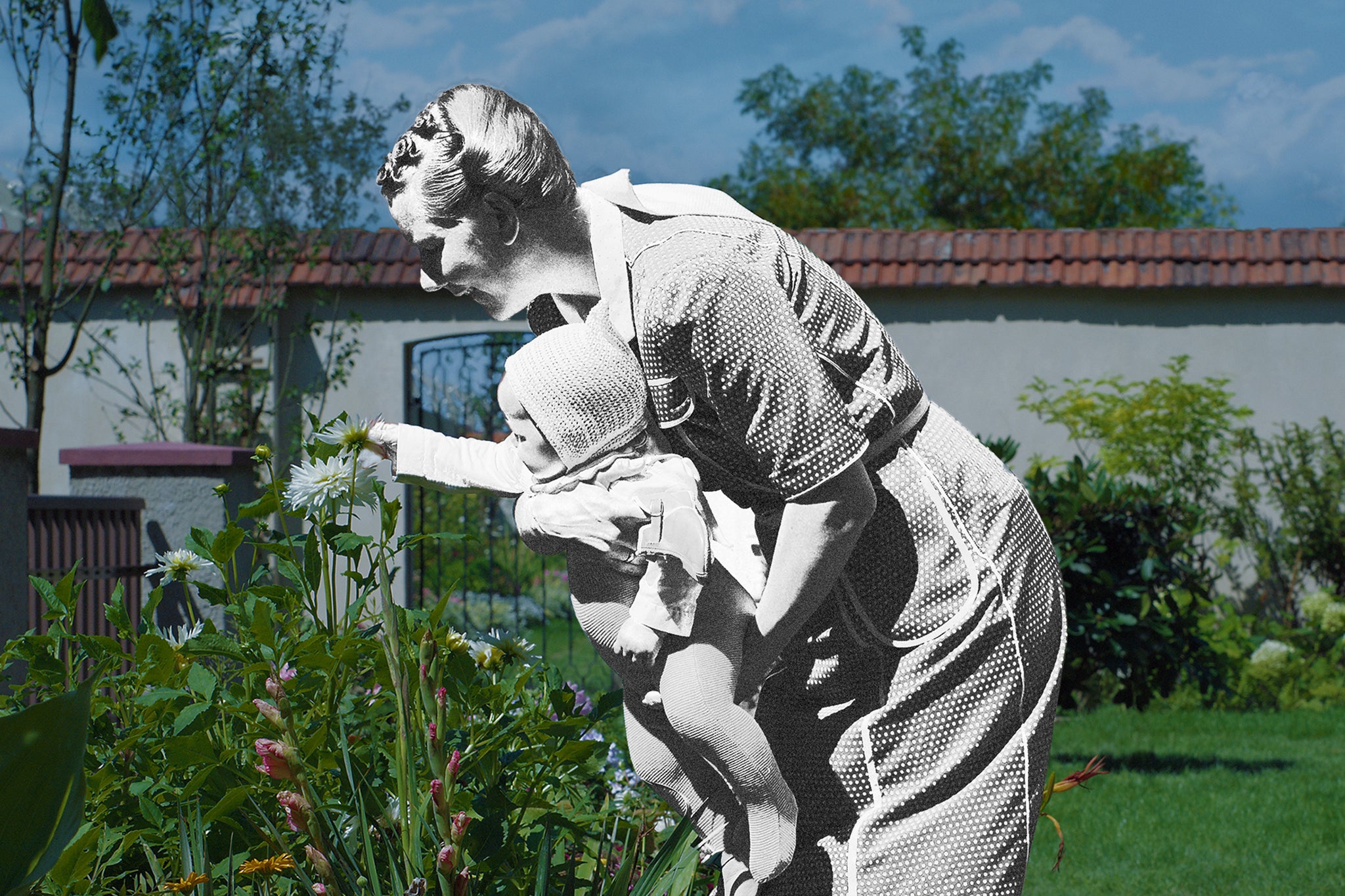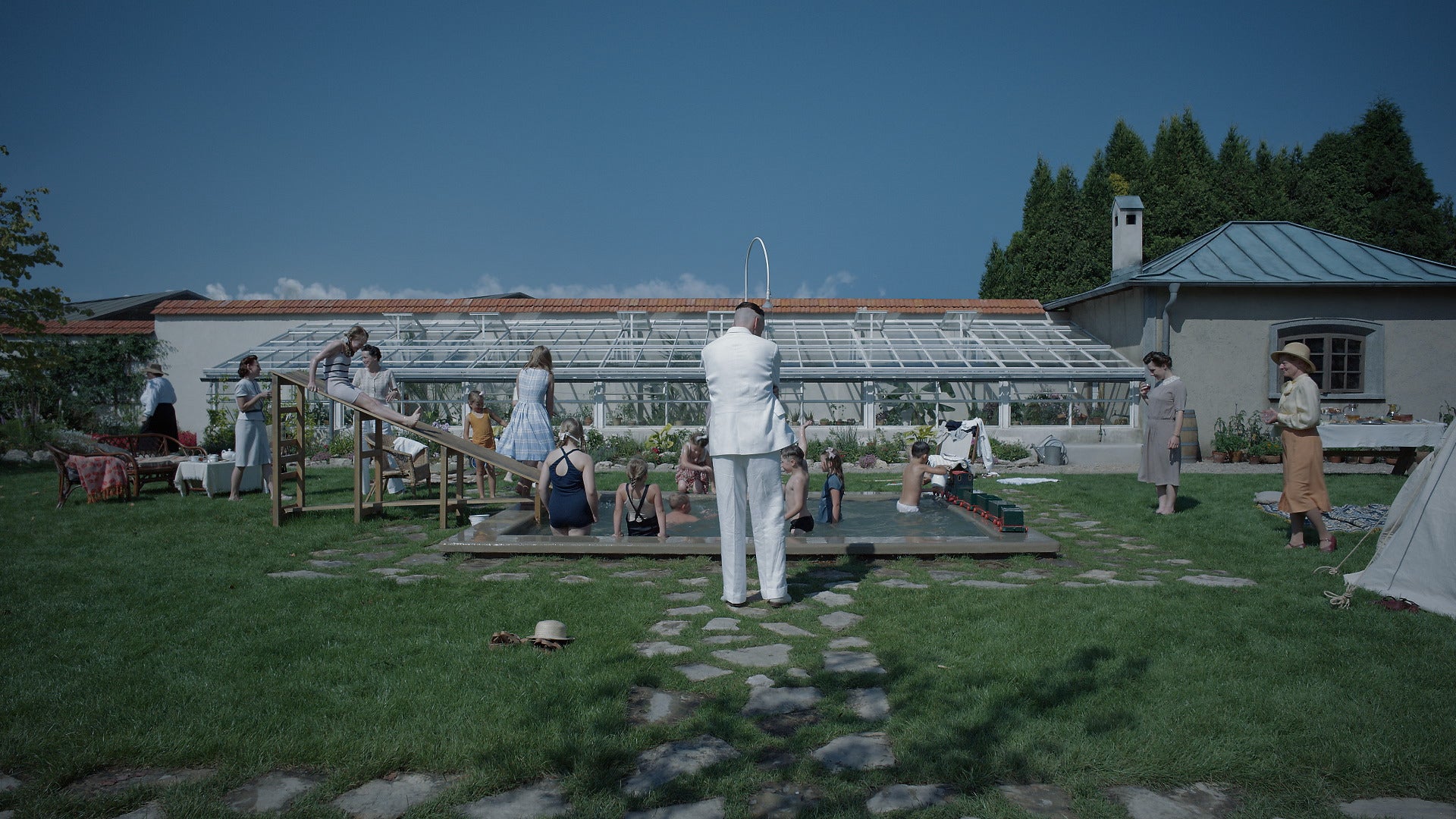‘There are ghosts with us’: The Zone of Interest stars on the making of a radical Holocaust film
Louis Chilton speaks to Christian Friedel and Sandra Hüller, the stars of Jonathan Glazer’s challenging new arthouse film set in a Nazi’s family home outside Auschwitz


Your support helps us to tell the story
From reproductive rights to climate change to Big Tech, The Independent is on the ground when the story is developing. Whether it's investigating the financials of Elon Musk's pro-Trump PAC or producing our latest documentary, 'The A Word', which shines a light on the American women fighting for reproductive rights, we know how important it is to parse out the facts from the messaging.
At such a critical moment in US history, we need reporters on the ground. Your donation allows us to keep sending journalists to speak to both sides of the story.
The Independent is trusted by Americans across the entire political spectrum. And unlike many other quality news outlets, we choose not to lock Americans out of our reporting and analysis with paywalls. We believe quality journalism should be available to everyone, paid for by those who can afford it.
Your support makes all the difference.There’s never been a film quite likeThe Zone of Interest. Set in a Nazi commandant’s family home just metres outside of the borders of Auschwitz, the Oscar-nominated arthouse drama is a Holocaust film that refuses to depict the Holocaust. Christian Friedel plays Rudolf Höss, a real-life Nazi commander on the rise, while Sandra Hüller plays his wife Hedwig, a woman building a queasily idyllic home on the outskirts of the concentration camp. “They call me the Queen of Auschwitz,” she boasts, while overlooking her verdant garden.
“I had offers to portray Nazis before,” recalls Friedel, speaking to me over Zoom alongside his co-lead. “And I always said ‘no’ – because often, it seems to be more of a cliché. But Jonathan invited us to create our own interpretation of these characters. He wrote a phenomenal script, and invited us to figure it out based on these real photographs, these real people… he invited us to find the truth.”
The Jonathan mentioned is Jonathan Glazer, the visionary British director behind Under the Skin, Birth, and Sexy Beast. The Zone of Interest is only his fourth feature in three decades, and constitutes a radical stylistic departure: the film is minimalist, austere and entirely in German. If there’s something unusual about a Brit directing a German-language Holocaust film, few are questioning the results – least of all the film’s stars.
“I don’t think so much about Jonathan as an Englishman,” says Hüller, who first came to the attention of many English-speaking audiences with a leading role in the 2016 comedy Toni Erdmann. “We share a deep, deep disgust towards the people [in the film]. I don’t know if one day a German director will make a film about the Holocaust like this – that makes us feel like we have never spoken this language before. But he made this film because he’s Jonathan. It’s his craft, and he has a really close team around him, and there was a deep understanding between all the people involved in this.”
“I don’t think the core of the story we are telling is specifically German,” Friedel agrees. “I think it needs an artist like Jonathan Glazer, maybe. He’s using the German past to tell a universal thing for all of us.” Friedel in fact describes The Zone of Interest as a “worldwide” movie. “There’s American money," he says. "A Polish team. German actors. British crewmembers. Jonathan said art is a universal language – I think that’s true.”
The Zone of Interest is based on a 2014 novel by Martin Amis, which tells the story of a Nazi officer’s love affair with his superior’s wife. Glazer’s script strips the novel for parts, doing away with the main storyline and focusing instead on the setting. A towering study of the banality of evil, this is a film where the horror and the meaning lie offscreen. It was filmed in a re-designed derelict home outside the actual camp wall, near the original Höss family residence. Glazer used a setup of 10 cameras embedded around the house, allowing the actors to improvise freely (an approach he has described as “Big Brother in the Nazi house”).

The subject matter made for an emotionally taxing shoot, with Friedel revealing that he had a panic attack while on set. “But it didn’t matter if it was hard or not,” says Hüller. “I think we both felt when you’re there in this place, and the camp wall was literally 100m from the set… you have to put it into perspective. Nobody here brought any ego; nobody would want to ‘win’. It was really a completely personal struggle with this topic – for Jonathan and each of us, too.”
Throughout the largely plotless story, we see the Höss family enjoys the spoils of genocide. Hedwig and her fellow Nazi wives divvy up the possessions of Jews who had been sent to Auschwitz. Jewish victims are seen only as they enter the Höss property to labour. It is through the background noise alone that we are afforded a sense of the atrocities: screams, gunshots, and other sickening noises are near-constant, and ring out unacknowledged by the characters on screen. It refuses to offer any sense of resolution or justice – as in real life, there is none.
We sometimes asked ourselves what kind of world this would be now, if this hadn’t happened. The start still makes me so, so sad.
In making The Zone of Interest, Glazer eschewed any sort of artificial period aesthetic, giving the audience nothing to thrill or tease them. “We attempted to make it a modern film, not a historic one,” Hüller says. The film still nonetheless has a striking eye for images, laden with terrible implications. At one point, Rudolph is seen smoking a cigar in his back garden. In the distance, we see another plume of smoke – this one rising from the camp’s smokestacks.

Watch Apple TV+ free for 7 days
New subscribers only. £8.99/mo. after free trial. Plan auto-renews until cancelled

Watch Apple TV+ free for 7 days
New subscribers only. £8.99/mo. after free trial. Plan auto-renews until cancelled
The attention lavished on The Zone of Interest over the course of awards season has been something of a surprise. While films about the Holocaust have frequently been major awards players – from Schindler’s List to The Pianist to JoJo Rabbit – none have been as starkly arthouse, as fiercely uncommercial, as this. And yet the film has been nominated for five Oscars, including Best Picture and Best Director. (Hüller is also nominated for Best Actress, but that’s for her role in another film, the powerful courtroom drama Anatomy of a Fall.)
For Hüller and Friedel, the glitz of the red carpet conveyor belt has been jarring, given the film’s sober subject matter. “Frankly, I do find it strange to be part of the [awards] machinery… it’s a strange thing to talk about in this glamorous surrounding,” says Hüller. “But on the other hand, it’s necessary to speak about it as much as possible. Of course that’s tiring, and there are all sorts of feelings involved, including anger. But it’s not been spoken about often enough.”

Despite the specificity of its 1943 setting, The Zone of Interest is a timely and urgent work – a film about ignorance, Hüller says. “The whole world was – and is – affected by fascism,” she adds. “That’s something that changed everything. We sometimes asked ourselves what kind of world this would be now, if this hadn’t happened. The start still makes me so, so sad. I can’t even tell you… what it triggers inside of me even talking now… the realisation of what this behaviour was, the choices that these people made.”
The Zone of Interest may not be the defining piece of art about the Holocaust, but it is one of the most potent. It’s a film that interrogates the very purpose of Holocaust fiction, asking us what’s being left out of the picture, and why. “It was intense,” says Friedel. “Every day we went to work, we felt the responsibility.
“There’s something that Sandra sometimes said, very beautifully – ‘There are ghosts with us from the past.’ We felt this past, and never forgot what we were doing there.”
‘The Zone of Interest’ is in cinemas now
Join our commenting forum
Join thought-provoking conversations, follow other Independent readers and see their replies
Comments